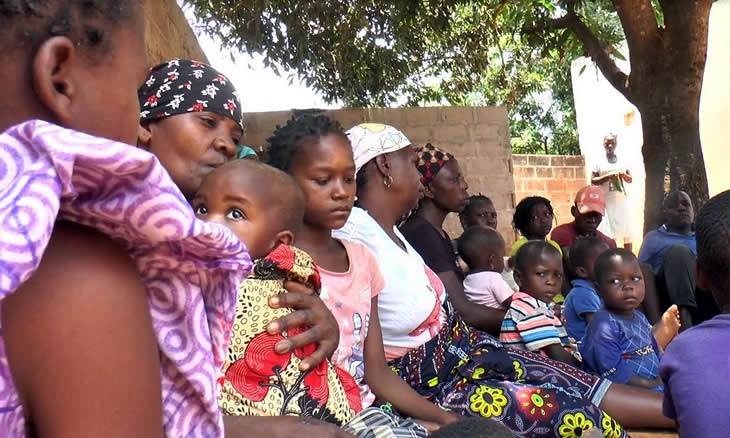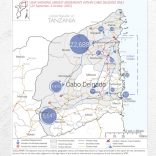Mozambique: No risk of mpox becoming a pandemic
Mozambique: An important day for IDPs in Corrane

Photo: O País
The ongoing conflict in Cabo Delgado is having a direct impact on many families in Nampula province, some of which are accommodating more than 30 internally displaced people (IDPs). Reports of hunger and stories of anguish are exchanged among families with kidnapped members.
This Wednesday is decisive for many of those displaced, who now have land and their “own homes” in Corrane administrative post in Meconta district.
Nampula has become the permanent home for many Cabo Delgado IDPs who have taken refuge in the province because of insecurity in their home areas. These people were in the temporary reception centres in Namialo, Meconta district, but now reside permanently in Corrane, also in Meconta.
In a first phase, 500 tents were set up, each prepared to accommodate a family of five members, therefore able to resettle 2500 people. But it is known that Nampula as a whole is home to 34,000 Cabo Delgada IDPs, the majority of whom are in Namialo and Nampula city.
And it is here in Nampula where the IDPs’ dramatic stories are told.
Etelvina Manyamba is a Cabo Delgado native who now lives in the city’s Namutequeliua neighbourhood, better known as the “district of the Makonds” after its many Maconde residents.
Family members from Mocímboa da Praia started to arrive after the intensification of terrorist attacks, and Etelvina’s small house currently hosts about 30 people, including children, adults and the elderly.
One of her brothers, Gerasy Manyamba, searches his phone for a photo of his 15-year-old son, kidnapped on 27 June by the terrorists, and bitterly recalls the escape route that became a trap. “We found the wrongdoers, they intercepted us and my child, along with my neighbour and some other people, were kidnapped, and we still do not know where they are,” he recounts.
Stories of atrocities include the murder of a religious leader, a co-worker of Gerasy Manyamba at the District Election Commission in Mocímboa da Praia, who refused to go to terrorist base to teach the Koran.
“He refused to go with them to teach the Koran, so they killed him and left his body at the bus terminal,” he said. He and others retrieved the body and held a funeral for him.
Another woman in the same house experienced the anguish of having her 30-year-old daughter kidnapped by the terrorists in March, leaving four young children.
Anecdotally, the terrorists kidnap women to serve as sex and domestic slaves, while teenagers and young people are trained to join the fighting ranks.
Road connection has been severed with the cutting of National Road 380 by the collapse of the bridge over the Montempwéz River, but this has constrained recruitment by the terrorists in Nampula and the central part of Cabo Delgado province, since that is the main access road to the northern part of the province.
Feeding so many people is for now the main challenge for host families like that of Etelvina Manyamba, who, bereft of any source of income, now depends on the goodwill of neighbours to put a meal on the table.
“Sometimes I stay in the room and don’t go out, because when do I find the children crying, and I have nothing to feed them with,” she laments. She has received ‘official’ support only once, when she was hosing only her father and some grandchildren from Mocímboa da Praia.
Her father will turn 100 on November 10th, but is unlikely to enjoy a celebratory meal.
The National Institute for Disaster Management (INGC) says that it has provided assistance to host families, but acknowledges that some may not have benefitted because information had not reached them through neighbourhood administrative structures.
“Some of these situations, when they do occur, are the result of delays in communication with the coordination team,” INGC provincial delegate Alberto Armando explained.













Leave a Reply
Be the First to Comment!
You must be logged in to post a comment.
You must be logged in to post a comment.